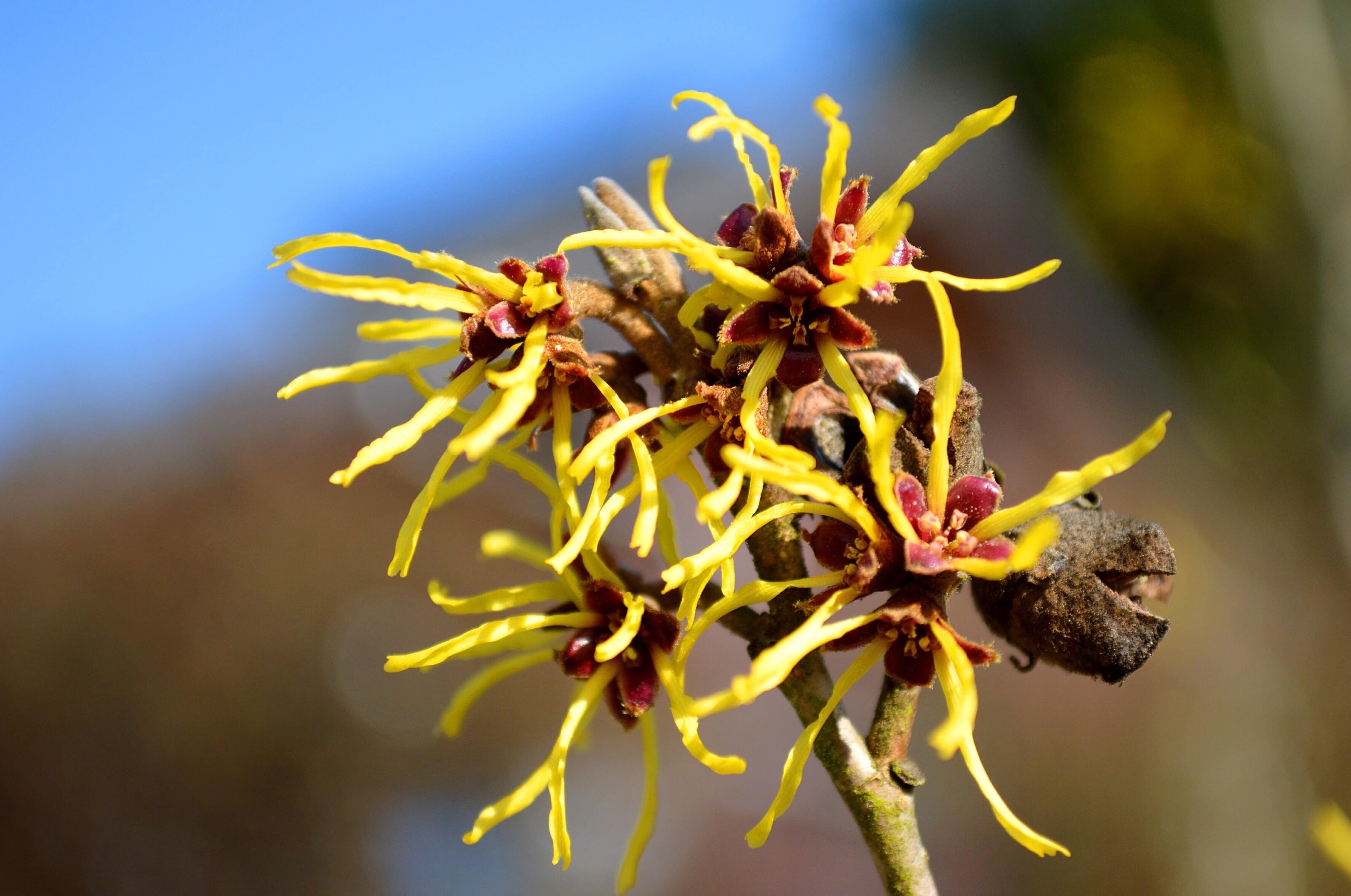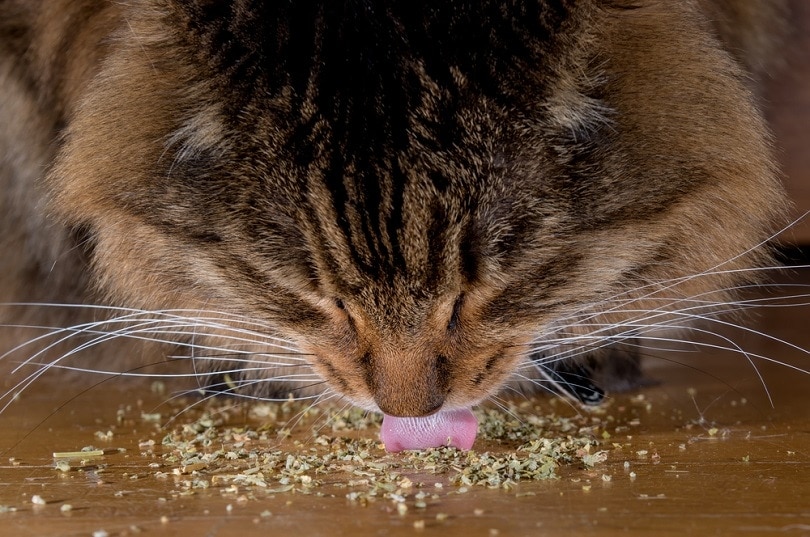Why Are Cats Attracted to Roses? 8 Surprising Reasons
Updated on
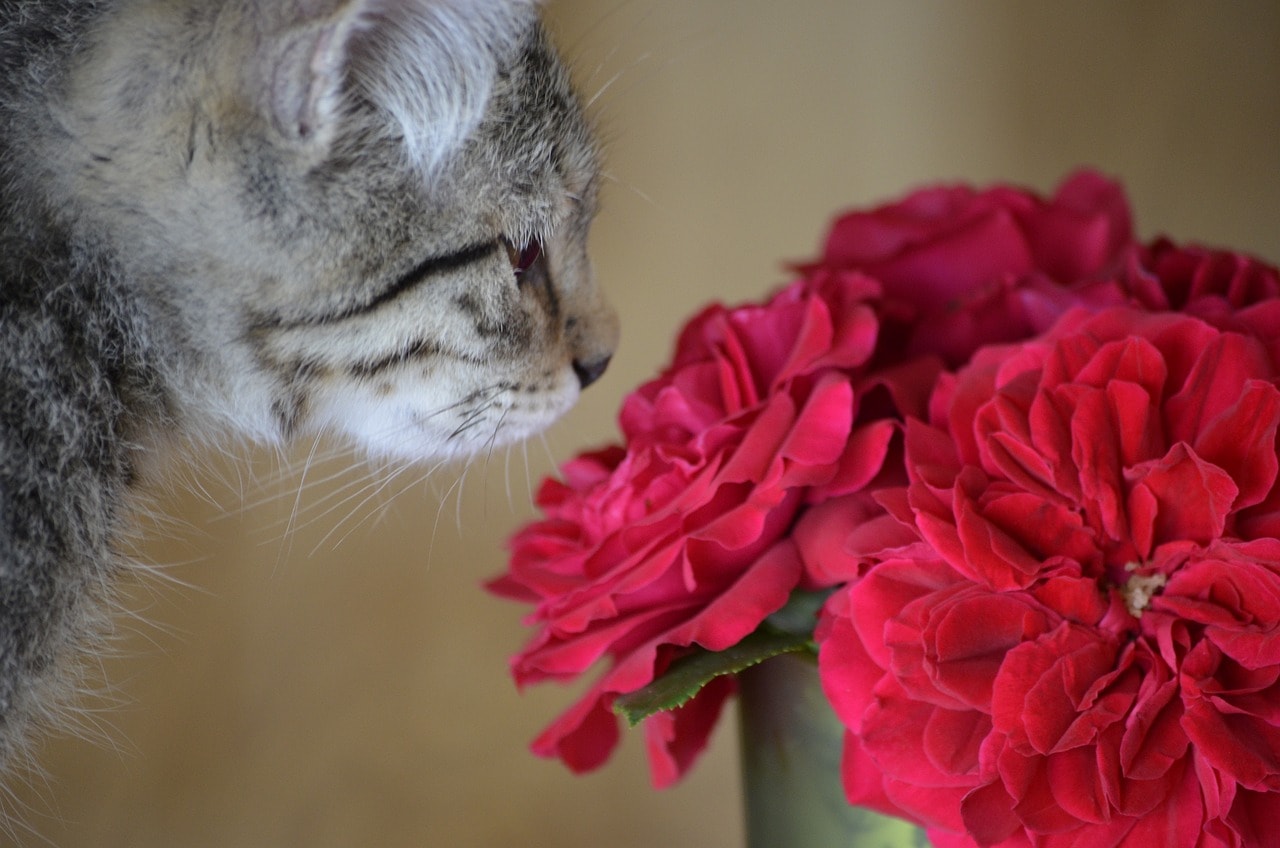
Cats seem like moths to a flame when it comes to plants. It’s practically a guarantee that if you have plants in your home, your cat has tried nibbling on them, and roses are certainly no exception!
But while you don’t want to see your beautiful roses destroyed, the more important concern is your cat’s safety. The rose plant itself isn’t toxic, but there are certain hazards to be aware of.
First, though, here are the reasons that cats might be attracted to roses. A quick disclaimer: No one truly knows why cats are drawn to roses and plants in general, but there are a few prominent theories.
The 8 Reasons Cats Are Attracted to Roses
1. Good Smell
Humans and cats alike love the smell of roses. Cats don’t necessarily enjoy the scent of all flowers, especially lavender, but they are definitely drawn to the smell of roses.
Since cats have exceptional senses of smell, they are naturally drawn to any scent that they enjoy or find interesting. To put it all in perspective, cats have a minimum of 200 million scent receptors in their noses, while we have only 5 million.
2. Curiosity
If you’ve ever spent any time around babies, you see them constantly putting things in their mouths. This is how they learn and explore the world around them.
Cats also taste and chew on things to learn more about them. You might occasionally see your cat smell something intently and then look up with their mouth open, which is called the Flehmen response.
The Flehmen response involves Jacobson’s organ, which is located on the roof of the mouth. When cats discover an intriguing smell, they inhale it through their nose and mouth. This enables the organ to gain information about the object. It’s a sort of smell-taste reaction.
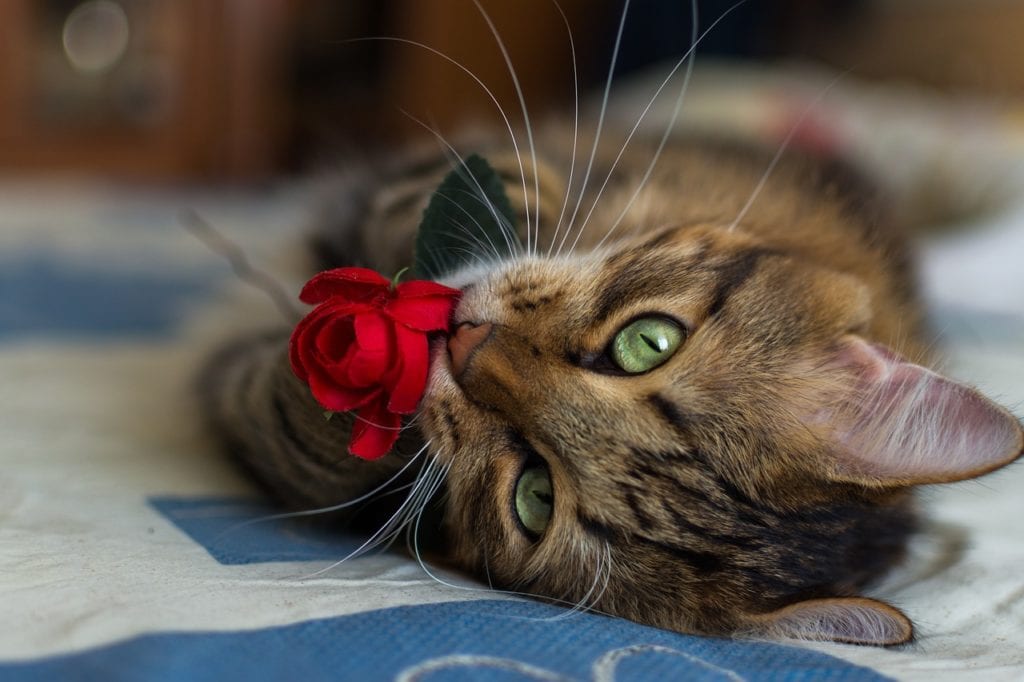
3. Tasty
If a cat tastes something that they like, they’ll likely go back for seconds. Some people put rose petals in food because they have a floral and slightly sweet flavor.
Cats can’t taste sweet, so that wouldn’t be why they enjoy snacking on these flowers. But some cats do find something appealing in the taste of roses, so they will continue to eat them.
While roses aren’t dangerous to cats, many other plants and flowers are, and cats will eat them regardless.
4. Feeling Sick
Some people believe that when a cat isn’t feeling well, they’ll eat a plant that helps them vomit, which might lead to the cat feeling better. This commonly happens with grass, but many plants, including roses, can also potentially induce vomiting.
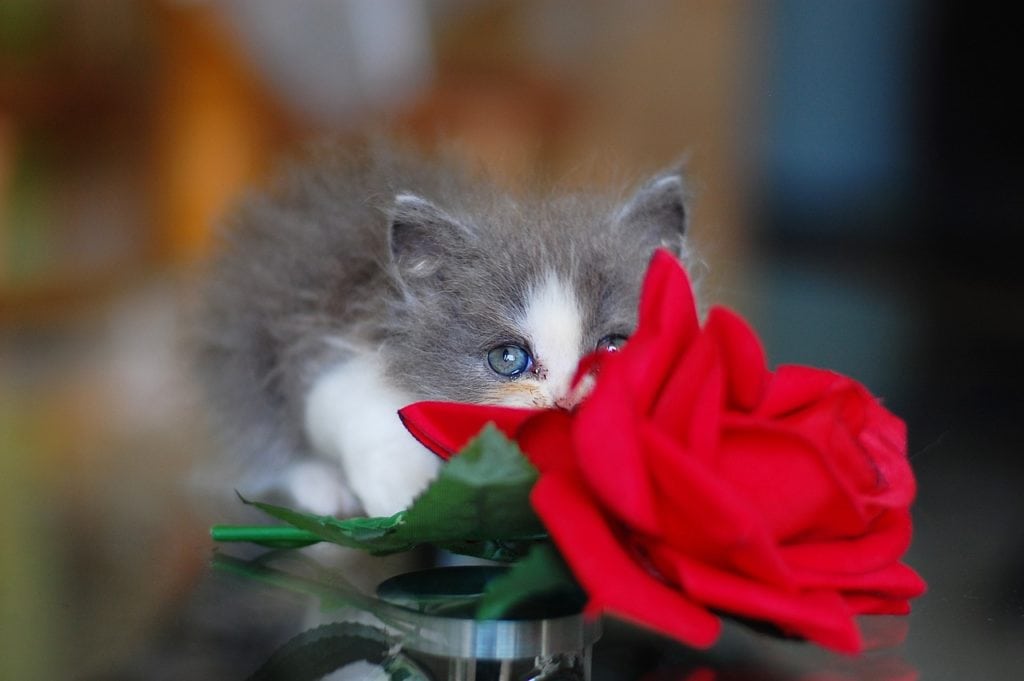
5. Possible Hairball Issue
This is similar to when a cat is feeling ill, but it’s also thought that some cats eat plants to get rid of hairballs. Hairballs are formed from the copious amounts of hair that a cat swallows when grooming themselves.
Most hair is evacuated along with their feces, but it can sometimes build up in the stomach and be eventually vomited out in the form of a hairball. Eating roses could potentially help the cat throw up a nasty hairball.
6. Seeking Nutrients
Cats are obligate carnivores, which means meat makes up almost their entire diet, and they have difficulty digesting plant matter. But some people believe that when a cat eats plants, they are instinctively looking to compensate for any nutrient deficiencies.
Plants can potentially provide vitamins, micronutrients, and minerals that might be missing from a cat’s diet.
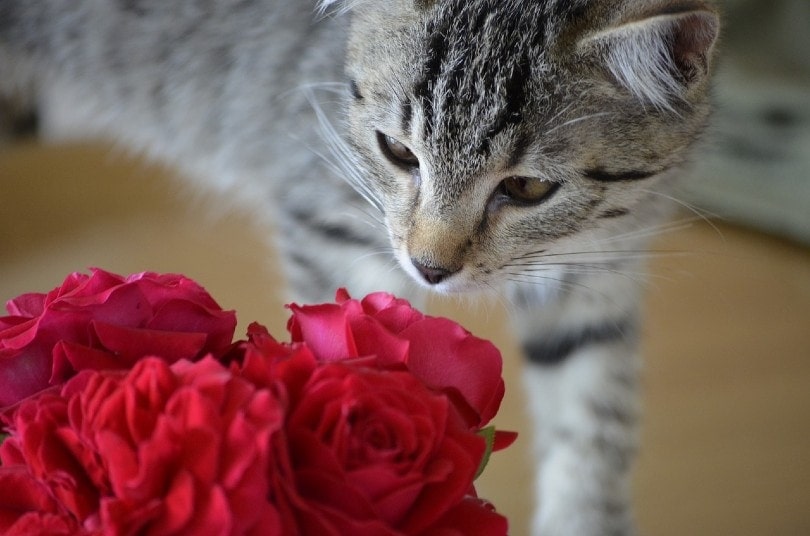
7. Inherited Instinct
A 2021 study found that the wild ancestors of domesticated cats likely ate plants as a way to remove worms in their intestinal tract. While most modern cats don’t have worms due to annual visits to the vet, the instinct is still there.
The study hypothesized that it wasn’t likely that cats eat plants just because they are feeling ill or to remove hairballs. But the researchers stated that there might be a possibility that plants could provide nutritional benefits to cats.
8. Boredom
Cats that are frequently left alone might go after your roses because they are bored and seeking attention.
If you’ve chased your cat away from your roses before, they will learn that they’ve gotten your attention. This will encourage your cat to continue the misbehavior.
It also means you’ll need to spend time playing with your cat and to put your plants out of reach.
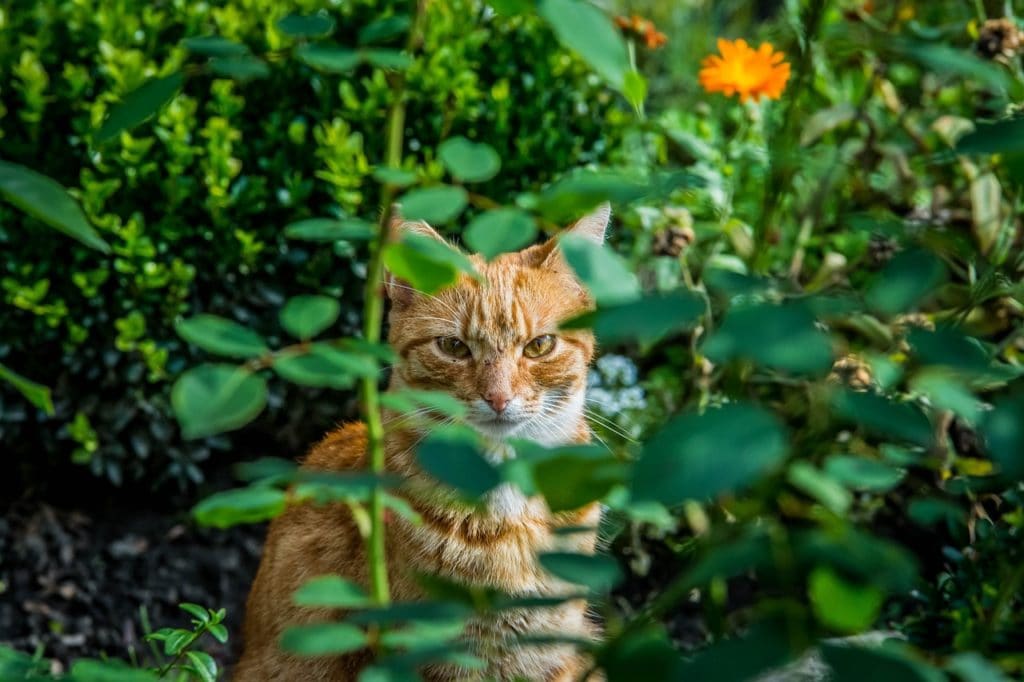
 The Hazards of Roses
The Hazards of Roses
The ASPCA’s list of toxic and non-toxic plants lists the rose as non-toxic to cats, but there are still a few things that you should be aware of.
While roses are generally safe for cats, they might have a stomach upset after eating the plant, such as vomiting and diarrhea.
The thorns are also a concern. A cat can damage their mouths and paws when investigating roses that haven’t had the thorns removed.
Additionally, there’s the risk of pesticides. Whether there are pesticides on the roses in your garden or on the roses that you’ve arranged indoors, they can prove harmful for a cat that eats them.
- Vomiting
- Drooling
- Fever
- Diarrhea
- Difficulty breathing
- Lethargy
- Lack of appetite
- Tremors
- Seizures
If you observe any of these signs in your cat, seek medical help immediately!
Toxic Flowers
- Christmas rose
- Desert rose
- Easter rose
- Moss rose
- Primrose
- Rosebay
- Rose of Sharon
If you’re growing roses in your garden or have picked up an arrangement, ensure that your cat doesn’t have easy access to any of these flowers.
The most toxic flower is the lily. Every part of the plant is highly toxic to cats. If your cat had lily pollen on their fur and they licked it off, they can develop kidney failure.
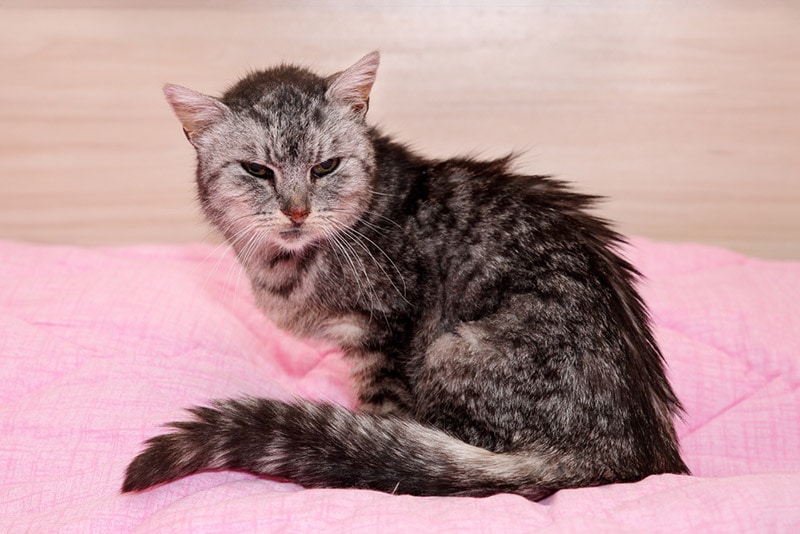
Safe Flowers
- Alstroemeria
- Asters
- Freesias
- Gerbera daisies
- Lisianthus
- Orchids
- Snapdragons
- Sunflowers
- Wax flowers
- Roses
Keep in mind that while these plants are safe, they can still give your cat an upset stomach if they eat them. The point is to not feed any of these plants to your cat but to ensure that if your cat happens to eat them, they won’t be poisoned.
 Conclusion
Conclusion
While some cats will be drawn to roses by their scent, others are not inclined to get near them at all. Rest assured, as long as the roses haven’t been treated with any chemicals or pesticides and the thorns have been trimmed off, they are overall safe for cats.
Beyond your cat’s safety, you won’t necessarily want them to eat your roses, anyway. So, keep all plants out of your cat’s reach, ensure that they eat a healthy diet, and play with them regularly. This way, your cat will live a long and healthy life.
- See Also: Why Are Cats So Flexible
Featured Image Credit: Pixabay

 The Hazards of Roses
The Hazards of Roses